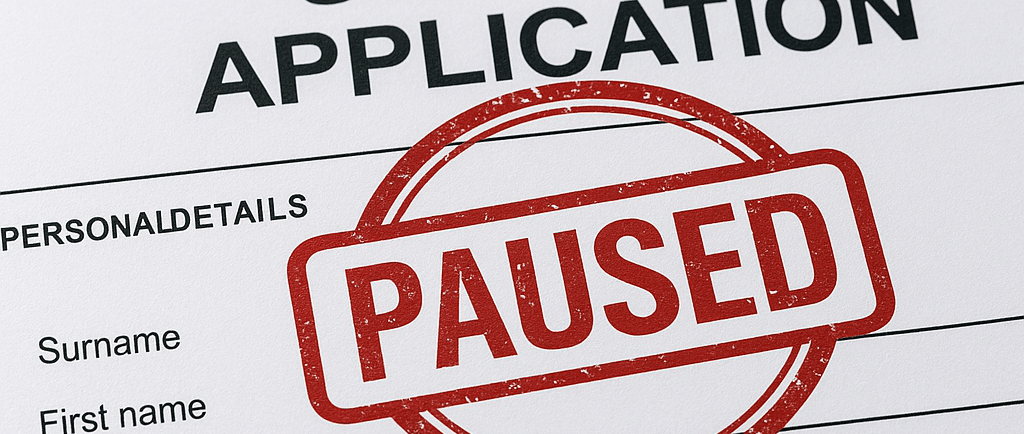Navigating New Challenges: What the Temporary Halt on U.S. Student Visa Interviews Means for You
Learn how the pause on US student visas may affect you
5/29/20252 min read


The recent directive from the Trump administration to pause new visa appointments for international students has stirred concern and confusion among thousands of students around the world. If you're planning to study in the United States, you may be wondering what this means for your academic future—and what you should do next.
In this post, we’ll break down what’s happening, how it might affect you, and the actions you can take to stay on track.
What’s Going On with Student Visa Interviews?
As of March 27, the U.S. State Department has instructed embassies and consulates worldwide to suspend scheduling new visa interviews for international students. This affects the most common student-related visas:
F visas for academic students
M visas for vocational students
J visas for exchange visitors
(It's important to note: if your visa interview was already scheduled, it should still proceed as planned.)
Why the Pause?
The suspension is tied to a broader effort to expand social media screening and vetting of visa applicants. U.S. officials say it’s intended to enhance national security—but it's raising concerns due to a lack of clarity around what kinds of online speech or content might be flagged.
Who's Affected—and How?
This change comes at the worst possible time for many, coinciding with the peak season for student visa processing. Students hoping to begin studies in the coming months now face delays and uncertainty.
Leaders in international education are voicing their concern:
Shaun Carver (UC Berkeley) warned that unclear policies like this could push students to choose more welcoming countries like Canada, the UK, or Australia.
Edwin van Rest (Studyportals CEO) and Fanta Aw (NAFSA President) have both criticized the move as unnecessary, arguing that students are already subject to rigorous vetting procedures.
What You Can Do as an International Student
Facing delays doesn't mean you're out of options. Here’s what we recommend:
1. Stay Informed
Check for updates frequently from U.S. embassies, trusted news sources, and your prospective universities. Policies are evolving quickly.
2. Keep in Touch with Schools
If you’ve already applied or been admitted, stay in contact with your admissions office. Many schools are offering support, alternatives, or flexibility for students impacted by visa delays.
3. Review Your Social Media
Since vetting now includes a deeper look into online behavior, make sure your profiles reflect professionalism and avoid posts that could be misinterpreted.
4. Consider Backup Plans
While the U.S. may still be your top choice, it’s wise to research other study destinations. Countries like Canada, Australia, and the UK remain strong options and may offer faster visa processing during this time.
Looking Ahead: Will Things Get Better?
Despite this disruption, many believe the U.S. will continue to be a top destination for international students:
Institutional Support: U.S. universities are actively advocating for international students and exploring ways to support them through policy changes.
Long-Term Trends: While short-term fluctuations are likely, most experts don’t expect a long-term decline in student mobility to the U.S.
Let Elite EDvising Help You Navigate the Changes
The visa landscape may be shifting, but your dream of studying abroad doesn’t have to be put on hold. At Elite EDvising, we’re here to help you:
Understand evolving U.S. immigration policies
Prepare your applications and documentation
Explore alternative study destinations if needed
Make informed decisions with confidence
Contact us today to get personalized support on your education journey.
